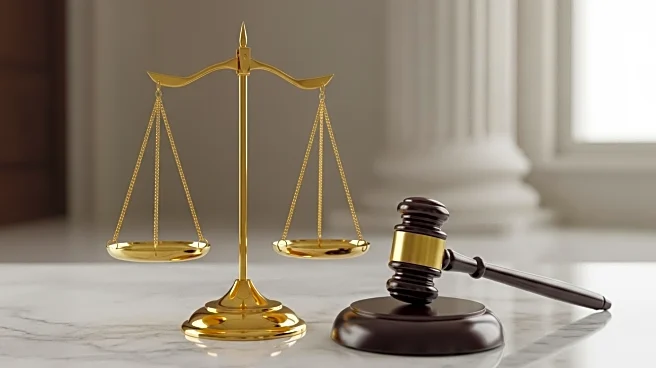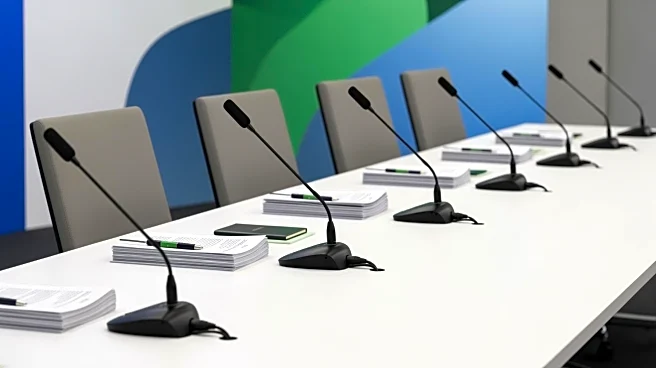What's Happening?
The U.S. Supreme Court is deliberating a case concerning the jurisdictional authority over federal prisoners' habeas corpus appeals. The case, Bowe v. United States, questions whether the bar on previously raised claims in second or successive habeas corpus applications
extends to federal prisoners' motions to vacate their sentences. The central issue is whether the Supreme Court has jurisdiction to review decisions granting or denying such motions. Justice Sonia Sotomayor emphasized the importance of jurisdictional arguments, while Chief Justice John G. Roberts Jr. and Justice Amy Coney Barrett expressed skepticism about the implications of the exceptions clause under Article III. The case involves Michael Bowe, who pleaded guilty to several charges in 2008, and whose firearm conviction grounds were invalidated by subsequent Supreme Court decisions. However, jurisdictional hurdles under the Antiterrorism and Effective Death Penalty Act (AEDPA) have prevented relief.
Why It's Important?
This case holds significant implications for the judicial system's ability to address errors in federal habeas corpus appeals. The outcome could affect the balance of power between Congress and the judiciary, particularly concerning the Supreme Court's appellate jurisdiction. If the court's ability to review such cases is restricted, it may lead to inconsistencies in federal law and create 'mini Supreme Courts' within circuit courts. The decision could impact federal prisoners seeking to challenge their sentences, potentially altering the landscape of post-conviction relief. The government's stance that the Eleventh Circuit erred but the Supreme Court lacks corrective power under AEDPA raises constitutional questions about the judiciary's role in ensuring legal uniformity.
What's Next?
The Supreme Court's decision will clarify the extent of its jurisdiction in federal habeas corpus appeals, potentially setting a precedent for future cases. Stakeholders, including federal prisoners, legal advocates, and policymakers, are closely monitoring the case for its implications on judicial review and congressional authority. The court's ruling could prompt legislative action to address any identified gaps in the AEDPA or similar statutes. Legal experts anticipate further debates on the balance of power between Congress and the judiciary, especially regarding the exceptions clause and its impact on the Supreme Court's essential functions.
Beyond the Headlines
The case highlights broader issues of judicial independence and the separation of powers within the U.S. government. It raises ethical considerations about the fairness of post-conviction relief processes and the potential for systemic inequities if the Supreme Court's review capabilities are curtailed. Long-term, the decision could influence legislative approaches to criminal justice reform and the rights of federal prisoners. The case underscores the ongoing tension between legislative intent and judicial interpretation, with potential ramifications for the legal community and civil rights advocates.














